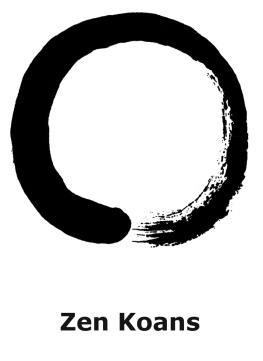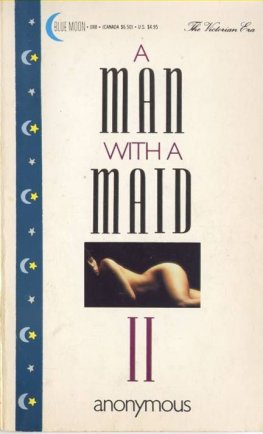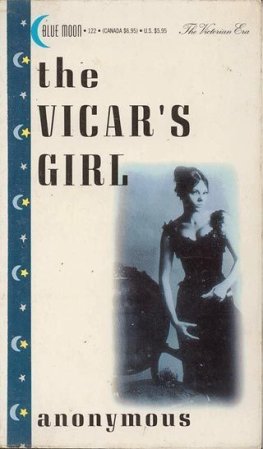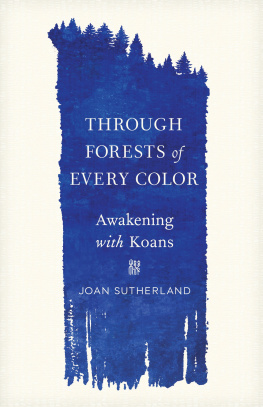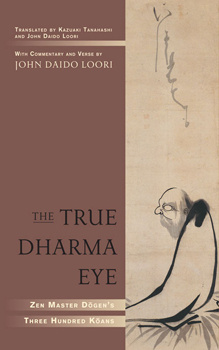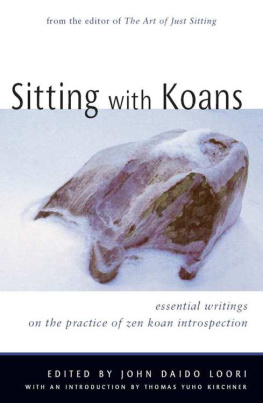Anonymous - Zen Koans
Here you can read online Anonymous - Zen Koans full text of the book (entire story) in english for free. Download pdf and epub, get meaning, cover and reviews about this ebook. genre: Detective and thriller. Description of the work, (preface) as well as reviews are available. Best literature library LitArk.com created for fans of good reading and offers a wide selection of genres:
Romance novel
Science fiction
Adventure
Detective
Science
History
Home and family
Prose
Art
Politics
Computer
Non-fiction
Religion
Business
Children
Humor
Choose a favorite category and find really read worthwhile books. Enjoy immersion in the world of imagination, feel the emotions of the characters or learn something new for yourself, make an fascinating discovery.
- Book:Zen Koans
- Author:
- Genre:
- Rating:3 / 5
- Favourites:Add to favourites
- Your mark:
- 60
- 1
- 2
- 3
- 4
- 5
Zen Koans: summary, description and annotation
We offer to read an annotation, description, summary or preface (depends on what the author of the book "Zen Koans" wrote himself). If you haven't found the necessary information about the book — write in the comments, we will try to find it.
Zen Koans — read online for free the complete book (whole text) full work
Below is the text of the book, divided by pages. System saving the place of the last page read, allows you to conveniently read the book "Zen Koans" online for free, without having to search again every time where you left off. Put a bookmark, and you can go to the page where you finished reading at any time.
Font size:
Interval:
Bookmark:
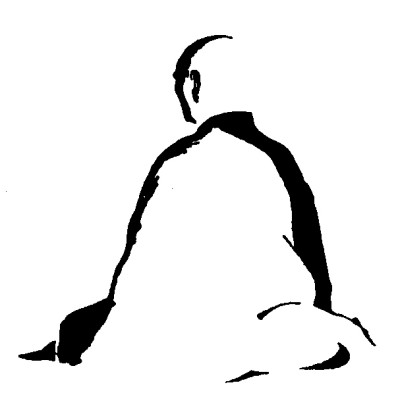
Nan-in, a Japanese master during the Meiji era (1868-1912), received a university professor who came to inquire about Zen.
Nan-in served tea. He poured his visitor's cup full, and then kept on pouring.
The professor watched the overflow until he no longer could restrain himself. "It is overfull. No more will go in!"
"Like this cup," Nan-in said, "you are full of your own opinions and speculations. How can I show you Zen unless you first empty your cup?"
Gudo was the emperor's teacher of his time. Nevertheless, he used totravel alone as a wandering mendicant. Once when he was on his way toEdo, the cultural and political center of the shogunate, he approached alittle village named Takenaka. It was evening and a heavy rain wasfalling. Gudo was thoroughly wet. His straw sandals were in pieces. Ata farmhouse near the village he noticed four or five pairs of sandals inthe window and decided to buy some dry ones.
The woman who offered him the sandals, seeing how wet he was, invitedhim in to remain for the night in her home. Gudo accepted, thanking her.He entered and recited a sutra before the family shrine. He was thenintroduced to the women's mother, and to her children. Observing that theentire family was depressed, Gudo asked what was wrong.
"My husband is a gambler and a drunkard," the housewife told him. "When hehappens to win he drinks and becomes abusive. When he loses he borrows moneyfrom others. Sometimes when he becomes thoroughly drunk he does not come homeat all. What can I do?"
"I will help him," said Gudo. "Here is some money. Get me a gallon offine wine and something good to eat. Then you may retire. I will meditatebefore the shrine."
When the man of the house returned about midnight, quite drunk, he bellowed:"Hey, wife, I am home. Have you something for me to eat?"
"I have something for you," said Gudo. "I happened to be caught in therain and your wife kindly asked me to remain here for the night. In returnI have bought some wine and fish, so you might as well have them."
The man was delighted. He drank the wine at once and laid himself downon the floor. Gudo sat in meditation beside him.
In the morning when the husband awoke he had forgotten about theprevious night. "Who are you? Where do you come from?" he asked Gudo, whowas still meditating.
"I am Gudo of Kyoto and I am going on to Edo," replied the Zen master.
The man was utterly ashamed. He apologized profusely to the teacher ofhis emperor.
Gudo smiled. "Everything in this life is impermanent," he explained."Life is very brief. If you keep on gambling and drinking, you will haveno time left to accomplish anything else, and you will cause your familyto suffer too."
The perception of the husband awoke as if from a dream. "You areright," he declared. "How can I ever repay you for this wonderfulteaching! Let me see you off and carry your things a little way."
"If you wish," assented Gudo.
The two started out. After they had gone three miles Gudo told him toreturn. "Just another five miles," he begged Gudo. They continued on.
"You may return now," suggested Gudo.
"After another ten miles," the man replied.
"Return now," said Gudo, when the ten miles had been passed.
"I am going to follow you all the rest of my life," declared the man.
Modern Zen teachings in Japan spring from the lineage of a famous masterwho was the successor of Gudo. His name was Mu-nan, the man who never turnedback.
The Zen master Hakuin was praised by his neighbours as one living apure life.
A beautiful Japanese girl whose parents owned a food store lived near him.Suddenly, without any warning, her parents discovered she was with child.
This made her parents angry. She would not confess who the man was, butafter much harassment at last named Hakuin.
In great anger the parent went to the master. "Is that so?" was all hewould say.
After the child was born it was brought to Hakuin. By this time he hadlost his reputation, which did not trouble him, but he took very good careof the child. He obtained milk from his neighbours and everything else heneeded.
A year later the girl-mother could stand it no longer. She told herparents the truth - the real father of the child was a young man whoworked in the fishmarket.
The mother and father of the girl at once went to Hakuin to askforgiveness, to apologize at length, and to get the child back.
Hakuin was willing. In yielding the child, all he said was: "Is thatso?"
The master Bankei's talks were attended not only by Zen students but bypersons of all ranks and sects. He never quoted sutras not indulged inscholastic dissertations. Instead, his words were spoken directly from hisheart to the hearts of his listeners.
His large audience angered a priest of the Nichiren sect because theadherents had left to hear about Zen. The self-centered Nichiren priestcame to the temple, determined to have a debate with Bankei.
"Hey, Zen teacher!" he called out. "Wait a minute. Whoever respects youwill obey what you say, but a man like myself does not respect you. Canyou make me obey you?"
"Come up beside me and I will show you," said Bankei.
Proudly the priest pushed his way through the crowd to the teacher.
Bankei smiled. "Come over to my left side."
The priest obeyed.
"No," said Bankei, "we may talk better if you are on the right side.Step over here."
The priest proudly stepped over to the right.
"You see," observed Bankei, "you are obeying me and I think you are avery gentle person. Now sit down and listen."
Twenty monks and one nun, who was named Eshun, were practicingmeditation with a certain Zen master.
Eshun was very pretty even though her head was shaved and her dressplain. Several monks secretly fell in love with her. One of them wroteher a love letter, insisting upon a private meeting.
Eshun did not reply. The following day the master gave a lecture to thegroup, and when it was over, Eshun arose. Addressing the one who hadwritten to her, she said: "If you really love me so much, come and embraceme now."
There was an old woman in China who had supported a monk for overtwenty years. She had built a little hut for him and fed him while he wasmeditating. Finally she wondered just what progress he had made in allthis time.
To find out, she obtained the help of a girl rich in desire. "Go and embracehim," she told her, "and then ask him suddenly: 'What now?'"
The girl called upon the monk and without much ado caressed him, askinghim what he was going to do about it.
"An old tree grows on a cold rock in winter," replied the monk somewhatpoetically. "Nowhere is there any warmth."
The girl returned and related what he had said.
"To think I fed that fellow for twenty years!" exclaimed the old womanin anger. "He showed no consideration for your needs, no disposition toexplain your condition. He need not have responded to passion, but atleast he should have evidenced some compassion."
She at once went to the hut of the monk and burned it down.
Tanzan wrote sixty postal cards on the last day of his life, and askedan attendent to mail them. Then he passed away.
The cards read:
I am departing from this world.
This is my last announcement.
Tanzan
July 27, 1892
Font size:
Interval:
Bookmark:
Similar books «Zen Koans»
Look at similar books to Zen Koans. We have selected literature similar in name and meaning in the hope of providing readers with more options to find new, interesting, not yet read works.
Discussion, reviews of the book Zen Koans and just readers' own opinions. Leave your comments, write what you think about the work, its meaning or the main characters. Specify what exactly you liked and what you didn't like, and why you think so.

